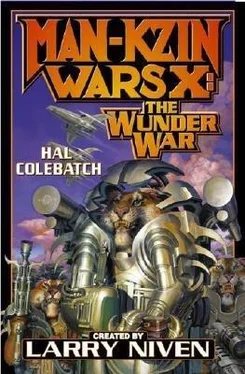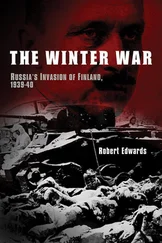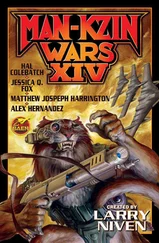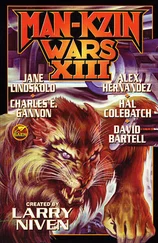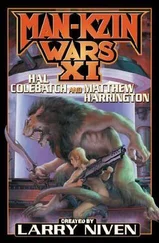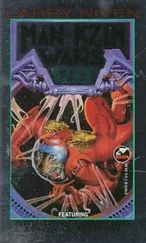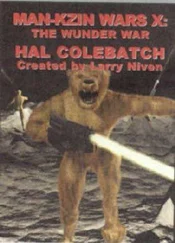“I feel it too,” said Gay. Charrgh-Captain growled. All kzin with their highly developed hunting instincts, even non-telepaths, were more sensitive to atmosphere than humans, but they did not like admitting it in such circumstances.
“Why is the dust swirling?” snarled Charrgh-Captain suddenly. “Have we live enemies?” He was holding a flashlight laser. Gatley Ivor gave a cry of dismay.
“It is the outwash effect our gravity-planer,” said Richard after a moment. “We can probably use the effect to blow dust out the hole if we need to clear it further. Luckily the rim of the crater has prevented more dust drifting down here from the surface.”
“I am sorry,” said Gatley Ivor.
He doesn't seem up to much, thought Richard. This is his job. He should be used to it, more knowledgeable, even more excited, thinking of the papers and books he will get out of this if nothing else. I wonder if there is something phony about him. Then, more charitably: But this isn't an experience you can rehearse for. And this place would put anyone on edge. Unless, perhaps, you have the nerves of a warrior kzin and are on edge all the time.
They turned their lamps to full flood, and looked about.
Wreckage was obvious, and so was decay. Metal once superhard was disintegrating through sheer age. Richard pointed to objects like crazed mirrors, standing deep in dust. “More stasis-fields,” he commented.
“Look more attentively,” said Charrgh-Captain, “They are thrintun spacesuits. And they are occupied.”
None of the party found it easy to look at the group without qualms. Six bipedal shapes, about half the size of a man, standing as they had stood for billions of years. Each spacesuit, they guessed, contained a thrint. Indeed it was possible to make out, or to least to fancy, the shapes of their individual features—the squat bodies, the gaping slashes of mouths in prominent jaws, the single disk of an eye, the bulged heads whose brains contained the Slaver Power: projective telepathy.
“These cannot harm us at present,” said Charrgh-Captain, “and there are evidently none in a condition that can. If monkey hands stay off them, there is no need for you to fear.”
“It isn't exactly fear,” said Gay.
“I know,” said Charrgh-Captain. His vocal cords were ill-suited for expressing emotion in Interword, but those two words carried a hint of apology. All thinking beings who knew the terrible history of the ancients felt something beyond fear for the Slaver Power. “But they will have switches on those suits, if they have not decayed away entirely, to kill the stasis fields. They will be protruding beyond the fields themselves. I recommend no tampering. At least we know now that it is a thrint stasis box, not a tnuctipun one. I suggest that before we conclude this expedition we drop them into a sun with a long life-expectancy. It would be satisfactory if the radiations and temperatures involved operated the mechanism and opened their suits for them then . It might happen. But what is this?”
“More stasis boxes?”
“ Some of them are stasis boxes.”
A row of spherical objects, each like a large model of the vast stasis field in a pocket of which they were standing. The top of each sphere was about twice the height of the kzinti, who stood in their spacesuits and helmets more than nine feet tall. They were mostly mirror-bright, though in the weak gravity of the chamber, dust had come to rest on parts of them in odd patterns. Gatley Ivor reached up to one and pulled away like orange peel a band of dust particles cemented together by time and vacuum. It had no adhesion to the surface of the field. Charrgh-Captain glared and growled at him. Partway along there was a break in the row. There was a sphere, nearly the same size as the stasis fields, showing not the mirror of stasis, but ancient metal, its top opened and slid aside. It was cracked and shattered. It appeared that its stasis field had been off and it had been involved when the chamber had been damaged. Past it were more metal spheres, stretching away in a line. Some of these were also more or less damaged and all had been opened.
“I don't understand,” said Richard.
“Nor I,” said Peter Robinson.
“These things have been here for eons beyond count or comprehension,” said Charrgh-Captain. “A few more hours can make little difference. We are not in a battle situation where victory and honor go to the swiftest. Indeed, if we resolve not to try to open the great sphere we are Honor-bound to at least bring away all the information we may. I see no reason why we should not take time to explore this chamber thoroughly.”
Exploration revealed nothing about what might be within the great sphere. They saw other suited thrintun figures, some anchored by shaped and stasis-protected boots, some floating. They found more of them in a separate compartment standing about what might be a control panel, other evidence of the damage to the chamber ages ago, and dust that—on a smaller time-scale—might or might not have once been thrintun who had had no time to reach their suits when that damage occurred. There were other stasis boxes that probably contained stores of various kinds, or possibly slaves. Stashed away in container bins they found many smaller but also occupied stasis-suits with different head-shapes which they surmised contained thrint females. There were tools and other unidentifiable things that time had welded to whatever surface they rested on.
They photographed and recorded everything, left mobile cameras in the chamber and on the surface, and returned to Wallaby .
Wallaby 's computer projected holos of the great sphere and of what they called the control chamber, with their discoveries incorporated: the row of metallic spheres apparently taken out of stasis, the damage, the row of spherical stasis fields still functioning, the other rooms and storage areas. But the holos told them no more than they had seen already. Photographs of the chamber's interior hung on the walls around them and samples of the dust were being taken apart in the all-purpose police and scientific tool generally known as an autocop. They had removed their helmets and gauntlets but the humans remained in their spacesuits—modern suits were as flexible, light and comfortable as ordinary clothing.
“The control chamber must be the equivalent of the on-off button on a thrint stasis-suit,” said Richard. He had been rereading the available information on the Slavers. The library contained all humanity's knowledge of them, which wasn't much. Charrgh-Captain had contributed a brick containing what the Kzin knew, or at least what the Patriarch was prepared to release to humans, which was not a great deal more.
“Of course, at the time when the stasis fields were activated, they expected other thrint to be around to turn them off within a reasonable time. Now, when we find stasis boxes of any kind, the controls are almost invariably worn away. The great problem with stasis boxes was always that once you are in stasis you can't control events. Any mechanism to turn a stasis field off has to be outside the field, so it is vulnerable to tampering or accidents, and beyond that to entropy. Sooner or later the hardest materials disintegrate.
“The solution here looks like a typically cumbersome and fallible thrint one, the clumsy work of thrintun who had good materials but suddenly had to think and design for themselves and weren't used to it. I feel the tnuctipun would have contrived something more elegant and foolproof, though at the moment I can't think what.
“The control center has as its principal feature a set of spherical stasis-boxes, all, it appears, containing metal spheres. Each opened box appears to have contained, along with other mechanisms, what appears to be an atomic clock. Of course, within the stasis field no time passes—even subatomic particles have no movement—so the clocks do nothing.
Читать дальше
